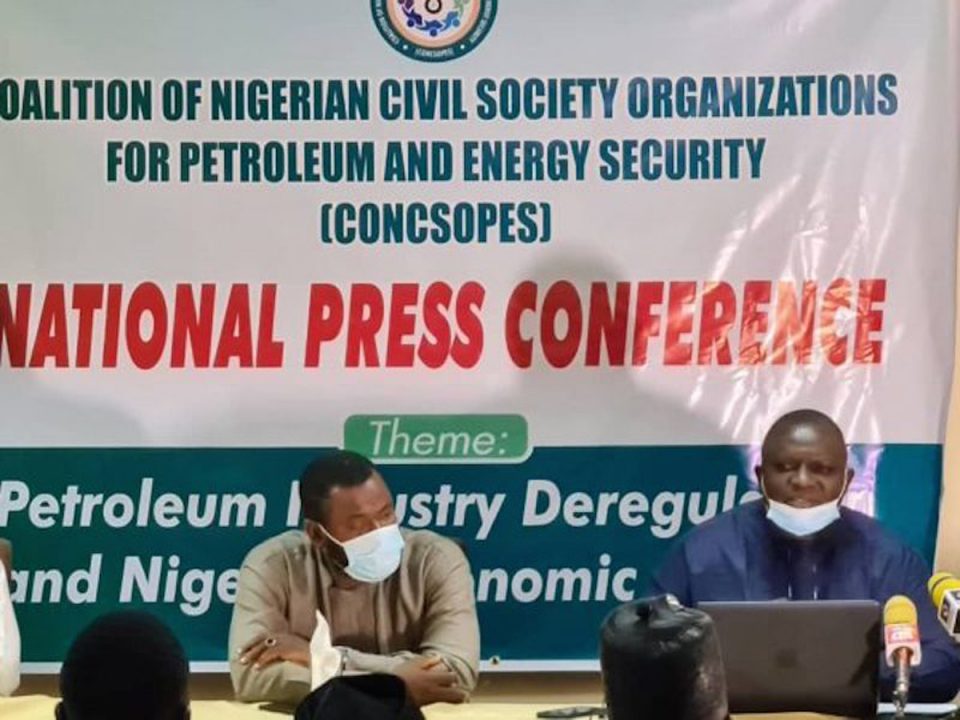The Coalition of Nigerian Civil Society Organisations for Petroleum and Energy Security (CONCSOPES) has warned that resisting deregulation would slow down the nation’s progress.
This was even as it called on organised labour to support government’s efforts to deregulate the downstream oil and gas sector, adding that the coalition would continue to support deregulation with human face.
CONCSOPES Convener, Mr. Timothy Ademola, who made the appeal at a news conference in Abuja at the weekend, said deregulation would promote growth and development in the sector.
“It will do our nation more good if our respected labour leaders spearheading the resistance to deregulation would recognise that it has largely stabilised petroleum products supply over these past years.
Once the foreign exchange issue that has made it difficult for major and independent marketers to engage in importation of petroleum products is resolved, the other gains of deregulation will kick in and Nigerians will be better for it. The market stabilisation that has been brought about by the past one year of deregulation is strong assurance that full deregulation is the way to go if Nigerians are to enjoy the full benefits of their hydrocarbon wealth,’’ he said.
The National Assembly Joint Committee of the Petroleum Industry Bill(PIB) had during a visit to the Dangote Refinery and Petrochemical Plants in Lagos last week, said the deregulation of the downstream sector was inevitable.
Citing the depletion of the country’s foreign exchange as a major disservice to the country, the NASS members said either now or later, deregulation was the way to go.
Ademola described deregulation with human face as one that works side by side with infrastructure development and boost to production capacity among others.
“We are saying that deregulation is good while boosting our local and national capacity of producing oil; deregulation while cooperating with the private sector to also bring expertise to provide petrol to our people.
That kind of deregulation for us is deregulation with human face. It is not just deregulation to absorb cost but it will be the one that will scrap absorption of cost,’’ he said. He gave assurance that CONCSOPES would continue to put pressure on government to ensure that full deregulation of the downstream oil and gas sector is beneficial to all.
In his remarks, an energy expert, Mr Henry Adigun, said deregulation remains the only way to ensure development of the downstream sector.
According to him, petrol is only an aspect of the deregulation debate, adding that kerosene has been selling at a higher price in the country’s black market since the last four years.
He said that no fewer than 18 million Nigerians still make use of kerosene to cook.
“The point is that government cannot sustain subsidy on petrol at N2.4 billion weekly as at today,’’ he added.
Meanwhile, Minister of State for Petroleum Resources, Chief Timipre Sylva, had in March last year announced the full deregulation of the downstream sector, a development that led to a major increase in petrol price.
But since then, Nigerians and organised labour have continued to agitate over the increase in the pump price of petrol, citing the hardship it had caused the citizens within the country.
For its part, the National Assembly, has given assurances that it would pass the PIB before the end of April.
The bill, when passed into law, would lead to full implementation of the deregulation policy.




